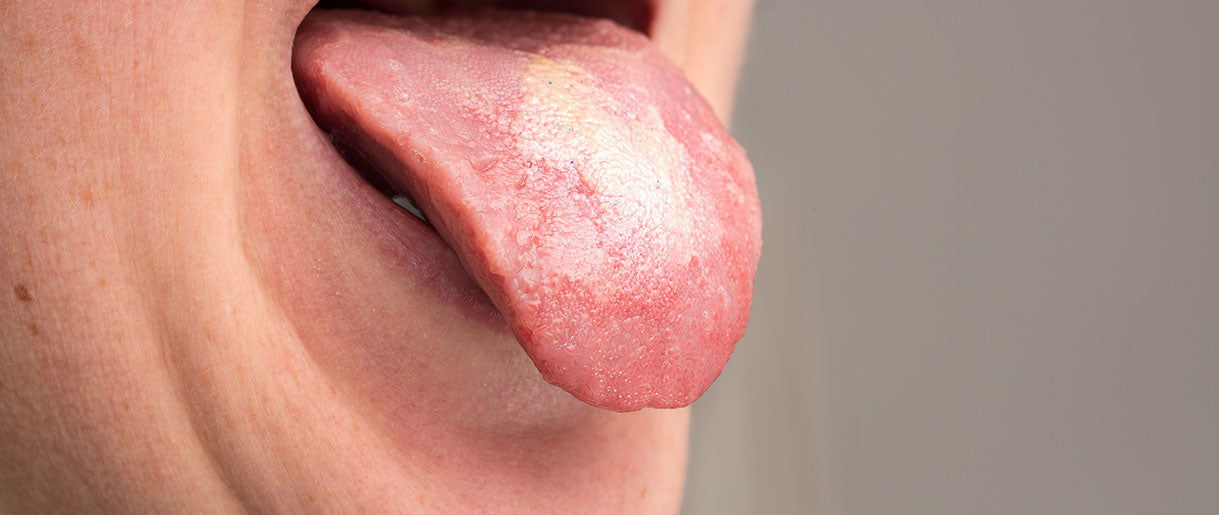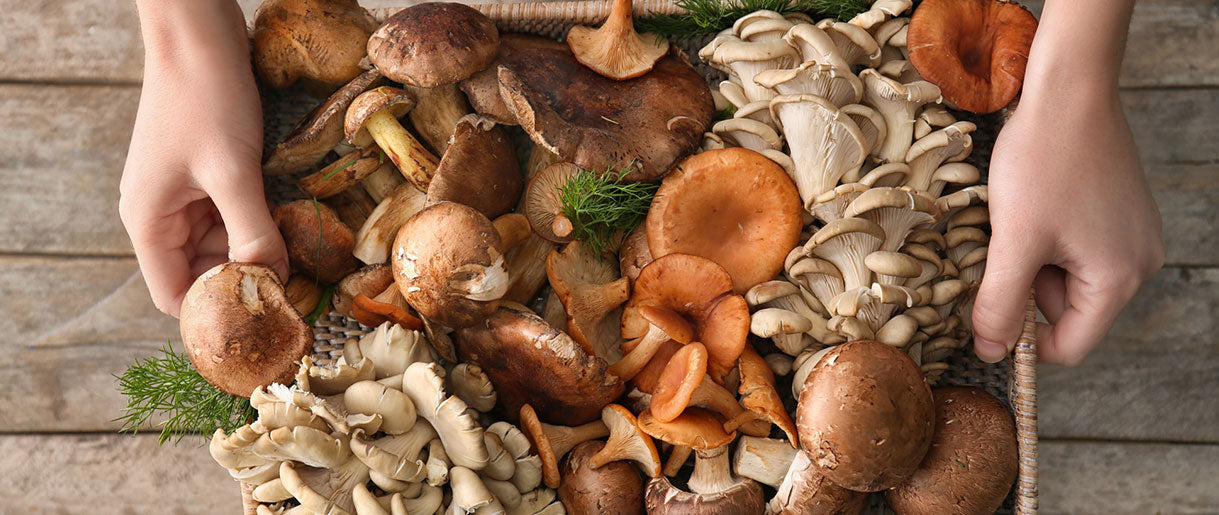Traditional practices and emerging scientific Research have linked mushrooms to fertility support. Specific types, such as Reishi and Cordyceps, are believed to promote reproductive health by supporting hormonal balance and reducing inflammation.
Incorporating mushrooms into the diet or taking specialized supplements may be a natural way to enhance fertility. However, consulting with healthcare providers or fertility experts is essential to understand the best approach for individual needs. Research in this area is still ongoing, and results may vary.
In a world where fertility concerns affect an increasing number of individuals and couples, the pursuit of natural, holistic remedies is gaining traction. Mushrooms, with their rich nutritional profile and medicinal properties, offer a unique avenue to explore within this context. Their role in traditional medicine across various cultures further validates the need to investigate how these fascinating fungi can be a part of modern fertility solutions.
Whether you're facing fertility challenges or simply interested in understanding the broader connections between diet and reproductive health, this article delves into the world of mushrooms and their potential benefits for fertility. From scientific evidence to practical ways to include them in your daily meals, we'll explore how mushrooms might be a nourishing and natural addition to your fertility journey.
A Look at Fertility

Defining Fertility: A Complex Aspect of Human Health
Fertility refers to the ability to conceive and bear children. It is essential in human reproductive function and concerns many individuals and couples. Female fertility, in particular, can be influenced by numerous factors such as immune system function, nutritional deficiencies, and hormonal imbalances.
Common Causes of Fertility Issues: A Multifaceted Challenge
Fertility issues can arise from a wide array of causes. Chronic diseases, chronic fatigue, immune function impairment, and polycystic ovary syndrome are some conditions that may affect fertility health. Certain lifestyle factors like diet may lead to nutritional deficiencies, further complicating fertility.
Traditional and Modern Treatments: From Ancient Wisdom to Contemporary Science
Various treatments have been employed, from traditional Chinese medicine to modern medical interventions to address fertility challenges. Medicinal mushrooms have been used for centuries in Chinese medicine to improve female fertility, support immune system health, and alleviate fluid retention.
Modern science is now exploring the role of functional mushrooms, including their effects on human granulosa lutein cells, the nervous system, serum testosterone levels, and sperm production. They may also offer support for cancer patients dealing with fertility complications.
The Nutritional Aspect: Vital Nutrients and Their Impact
Focusing on nutrition can be a pathway to managing stress and supporting reproductive function. Nutritional deficiencies can lead to imbalances in sex hormones and testosterone levels. Consuming the proper nutrients, however, can enhance fertility by ensuring the body gets everything it needs.
The Holistic Approach: Focusing on Overall Health
Mushrooms for hormonal balance may not only assist in improving female fertility but also offer support for overall well-being. From managing chronic health issues to supporting cardiovascular health and immune function, their highly nutritious content has been touted for its wide range of beneficial effects.
Anti-inflammatory properties, an essential role in immune response, and potential beneficial effects on conditions such as polycystic ovary syndrome make medicinal mushrooms valuable in a holistic approach to fertility.
The World of Mushrooms

Introduction to Mushrooms: A Fascinating Kingdom of Health Benefits
Mushrooms are diverse, and their general health benefits are wide-ranging. From supporting the immune system to managing chronic stress, mushrooms offer many wellness opportunities.
Whether it's enhancing cell function or balancing body fluids, mushrooms for fertility have become a topic of interest, not only for their potential in natural conception but also for their broader influence on health, including liver health and blood pressure regulation.
Mushrooms in Traditional Medicine: A Heritage of Healing Across Cultures
Mushrooms have been a significant part of herbal medicine in various cultures. Their use in enhancing sperm quality, supporting male fertility, and treating other health conditions dates back centuries.
From cognitive benefits to their role in addressing gestational diabetes, mushrooms have been seen as a natural remedy for various ailments. This rich history adds weight to using mushrooms for fertility in traditional practices and modern wellness approaches.
The Best Mushrooms for Health and Fertility Support: A Closer Look
Not all mushrooms are created equal when it comes to supporting fertility. Identifying the best mushrooms for this purpose requires understanding their unique properties. Some of the best mushroom types known for improving fertility include (more on this in later sections):
- Reishi: Known for its immune system support and potentially positive effects on fertility.
- Cordyceps: Often used in traditional Chinese medicine, it may contribute to enhancing sperm quality and supporting natural conception.
- Shiitake: Rich in trace minerals, this mushroom might help improve fertility and offer other health benefits, such as supporting liver health and regulating blood pressure.
Nutritional Profile: The Foundation of Fertility Support

Mushrooms' nutritional content is integral to their potential fertility benefits. Rich in vitamins, trace minerals, and essential nutrients, they support various body functions. The best mushrooms are known for their potential to enhance cell function, support the immune system, and offer additional benefits that might contribute to fertility support.
Vitamins like D and B-complex and trace minerals support overall health. In fertility, they may play a crucial role in creating a healthy environment for conception and maintaining good health during pregnancy.
Ergothioneine, a "master antioxidant" found in mushrooms, guards against oxidative damage to DNA, possibly preserving the health of egg and sperm DNA.
The following essential mushroom nutrients support fertility:
Selenium
The body uses selenium, an antioxidant enzyme component, to maintain thyroid function by converting thyroid hormones from one type to another. Your thyroid health, which is essential for fertility and pregnancy, can be supported by this.
Vitamin B complex
The synthesis and maintenance of DNA and RNA and energy production depend on the vitamin B complex. This is important for your general health and each cell, including the health and quality of your egg and sperm cells and their genetic makeup.
Vitamin D
This fat-soluble hormone is created when the skin is exposed to sunshine and is an essential ingredient for numerous bodily functions. According to research, there may be a direct link between vitamin D levels and AMH (Anti-Mullerian Hormone)—research indicates that(1) this hormone is highly vital for fertility. Interestingly, when exposed to sunlight, mushrooms produce vitamin D, making them one of the few non-animal sources.
Copper
Copper is involved in numerous bodily processes and is crucial for general health. It must be obtained from food because the body cannot make it alone. Iron absorption is aided by copper, which supports strong bones, blood vessels, nerves, and immune system functioning.
Potassium
Another crucial ingredient during pregnancy is potassium, an electrolyte that balances the effects of salt and aids in maintaining stable blood pressure levels. Electrolytes supply the little electric current necessary to operate numerous bodily functions.
Phosphorus
This is a nutrient that has a significant impact on how the body utilizes fats and carbs. The production of protein by the body is also necessary for the development, maintenance, and healing of cells and tissues. Therefore, it is crucial to our nutrition, especially for children whose bodies are still developing and growing.
Mushrooms and Fertility: Unveiling the Mysteries of Mushrooms

Reishi Mushrooms (Ganoderma Lucidum)
Reishi Mushroom, known as Ganoderma Lucidum, has been prized for centuries for its medicinal properties. Known for its ability(2) to support immune functions such as T cells, Reishi also offers anti-inflammatory effects that can benefit fertility.
Research into(3) Reishi's ability to enhance reproductive health is ongoing, but traditional practices have long utilized this mushroom for wellness. Moreover, research suggests(4) that Reishi improves hormonal balance, which could boost fertility.
Maitake
Maitake is gaining attention for its potential hormonal balance benefits. This mushroom has been the subject of studies that explore its role in regulating hormones, a vital aspect of fertility. Maitake's nutritional profile further highlights its appeal as a functional food with potential applications beyond fertility.
Cordyceps Sinensis or Militaris
Cordyceps mushroom, available in species like Sinensis and Militaris, enhances fertility by promoting healthy blood vessels. With a rich history in traditional Chinese medicine, it has been utilized to support vitality and reproductive health, with modern studies confirming(5) some of these traditional beliefs. Today, cordyceps boosts libido, and some evidence suggests(6) that cordyceps boosts testosterone—both benefits are essential in boosting fertility in men and women.
Lion's mane Mushroom
Lion's mane stands out for its cognitive benefits and nerve support. However, Lion's mane might support reproductive health through hormonal balance and anti-inflammatory effects. Its potential to boost fertility is an exciting area of ongoing study.
Turkey Tail
Turkey Tail, known for aiding immune support, is being explored for its role in fertility. This mushroom's unique properties may create a favorable environment for conception by strengthening immune functions and overall wellness.
Shiitake
Shiitake mushrooms, commonly enjoyed in a stir fry, are also being studied in powder form for their fertility-boosting effects. Rich in vital nutrients and known for supporting cardiovascular health, Shiitake may offer benefits that extend to reproductive health.
Possible Mechanisms: How Mushrooms May Impact Fertility

Hormonal Balance
Some mushrooms, like Cordyceps Sinensis or Militaris, are thought to have properties that regulate hormones. This balance is crucial for fertility and represents an intriguing application of mushrooms in reproductive wellness.
Anti-Inflammatory Effects
Chronic inflammation can hinder fertility. Mushrooms like Lion's mane and Reishi may provide anti-inflammatory benefits, helping create an optimal environment for conception.
Immune System Support
The immune-boosting properties of mushrooms like Turkey Tail and Reishi are well-documented. This support could translate into enhanced fertility by maintaining a healthy reproductive system.
Blood Vessel Health
Healthy blood vessels are essential for fertility. Cordyceps Sinensis or Militaris has been associated with supporting vascular health, which may facilitate natural conception.
How to Incorporate Mushrooms into Your Diet

Cooking Tips: Delightful Dishes with Mushrooms
Mushrooms are a versatile addition to any meal, from breakfast to dinner. Here's how to enjoy them:
- Simple Stir-Fry: Shiitake and other mushrooms can be quickly sautéed with vegetables and your favorite sauce for a healthy and delicious stir fry.
- Grilled Lion's mane: With its meaty texture, Lion's mane can be grilled with olive oil and herbs for a perfect side dish or meat substitute.
- Reishi Tea: Slow simmering Reishi in hot water creates a nourishing tea, often used in traditional Chinese medicine.
- Stuffed Mushrooms: Use large portobello caps to stuff with grains, cheeses, and herbs for a tasty entrée or appetizer.
Supplements: Supporting Fertility Naturally
For those who want to tap into the benefits of mushrooms specifically for fertility, supplements may be a viable option:
- Maitake Extract: Available in capsule form, Maitake supplements may support hormone balance.
- Cordyceps Sinensis or Militaris: Known to promote blood vessel health, it's available in pill or powder form.
- Reishi's Ability in a Capsule: Reishi supplements can offer a concentrated dose of this mushroom's immune-boosting and anti-inflammatory effects.
- Combo Supplements: Some products combine various mushrooms to create a comprehensive fertility support blend.
Precautions and Considerations: Safety First
While mushrooms offer potential benefits for fertility, they are not a one-size-fits-all solution:
- Consulting Healthcare Providers: Always consult a healthcare provider or fertility specialist before incorporating mushrooms or supplements into your fertility plan.
- Potential Side Effects: Be mindful of side effects and interactions with other medications or health conditions.
- Allergies and Sensitivities: Always check for allergies or sensitivities to specific mushrooms or their supplements.
- Quality Matters: Opt for high-quality supplements from reputable brands and fresh, organic mushrooms from trusted sources.
Mushrooms For Fertility
FAQs About Mushrooms for Fertility
Which Mushroom Is Best For Women?
While there's no one-size-fits-all answer, certain mushrooms are popularly believed to provide specific benefits that may appeal to women, particularly regarding fertility and reproductive health. Here are some that stand out:
- Reishi (Ganoderma Lucidum): Reishi is often touted for its ability to support the immune system and provide anti-inflammatory effects. Traditional Chinese Medicine has used Reishi to promote hormonal balance, which can benefit women's fertility and overall well-being.
- Maitake: Maitake is known for its potential ability to regulate hormones, including those that play a crucial role in female fertility. Some studies have explored its use in supporting women with polycystic ovary syndrome (PCOS).
- Shiitake: Rich in essential nutrients and known for supporting cardiovascular health, Shiitake mushrooms can be a nutritious addition to a woman's diet. These nutrients may contribute to overall reproductive health.
- Cordyceps: Both Cordyceps Sinensis and Cordyceps Militaris have been associated with enhanced vitality and blood flow. This might translate into better reproductive health and support for natural conception for women.
- Lion's Mane: Lion's Mane may provide cognitive benefits and support nerve function. Its anti-inflammatory effects and potential ability to support hormonal balance may appeal to women looking to optimize fertility.
It's important to note that individual needs and responses can vary greatly. While these mushrooms might offer potential benefits, consulting a healthcare provider is essential to determine the best approach for an individual's situation.
Do Mushrooms Affect Estrogen?
Mushrooms, particularly certain varieties, have been shown to influence estrogen levels or activity. This is primarily due to their phytochemicals that can act as natural aromatase inhibitors. Aromatase is an enzyme that plays a role in converting androgens (like testosterone) to estrogens. Here's a closer look:
- White Button Mushrooms (Agaricus bisporus): Some studies have indicated that white button mushrooms can act as natural aromatase inhibitors. By inhibiting aromatase, these mushrooms might reduce the production of estrogen. This property has sparked interest in potential breast cancer prevention or treatment applications since certain breast cancers are estrogen-sensitive.
- Reishi (Ganoderma Lucidum): Reishi mushrooms have been used in traditional medicine systems for their potential anti-tumor and immune-modulating properties. Some research suggests that Reishi can also interfere with the actions of certain hormones, including estrogen, but the exact mechanisms and implications require more in-depth study.
- Maitake (Grifola frondosa): Maitake is another mushroom that has been studied for its potential influence on hormone balance, including estrogen levels, particularly in conditions like polycystic ovary syndrome (PCOS).
It's important to note that while these initial findings are promising, more extensive Research is required to fully understand the effects of mushrooms on estrogen and the broader health implications.
Do Mushrooms Increase Testosterone?
The relationship between mushrooms and testosterone is complex and not well-established. Some studies and anecdotal evidence suggest that certain mushrooms may influence testosterone levels, but the evidence is mixed and often context-dependent.
- Cordyceps: Some studies on Cordyceps, particularly Cordyceps sinensis, suggest that it may have a positive impact on testosterone production, especially in the context of male fertility and athletic performance. The mechanisms are not entirely clear, and Research in humans is limited.
- White Button Mushrooms: In some studies, white button mushrooms have been shown to act as natural aromatase inhibitors. Inhibiting the conversion of androgens like testosterone into estrogen might indirectly lead to higher testosterone levels. However, this effect may be minimal and likely depend on various factors, including the amount consumed.
- Reishi Mushrooms: Some sources suggest that Reishi may decrease testosterone levels. Still, the evidence is inconclusive, and the effects may vary depending on individual factors and the context in which the mushrooms are consumed.
It's essential to recognize that the interaction between mushrooms and hormones, including testosterone, is complex. The effects may vary widely based on the type of mushroom, dosage, individual health conditions, and other variables.
Key Takeaways
As we've traversed the lush terrain of mushrooms and their potential influence on fertility, some key points have emerged. Mushrooms, revered in many traditional medicines, have many health benefits.
From their potential to boost the immune system to their intriguing ability to modulate hormones, these natural wonders might be a missing link for many in their fertility journeys. Mushrooms like Reishi, Maitake, and Cordyceps have shown promise in supporting both male and female reproductive health.
However, like any journey, this one, too, deserves mindfulness. A personal exploration of mushrooms can be a transformative experience, but it should always be complemented with guidance. If the potential of mushrooms resonates with you, it's imperative to walk hand-in-hand with healthcare professionals who can provide insights tailored to your unique situation.
We've only scratched the surface of this vast and evolving field of knowledge. So, dear readers, we encourage you to dive deeper, ask questions, and share your experiences.
Have you tried incorporating mushrooms into your diet for fertility benefits? Are there specific products or resources that have been instrumental in your journey? Share your thoughts in the comments below or spread the word about the magic of mushrooms. With every share, comment, or personal story, we grow a community rich in shared wisdom and collective exploration.
References
- The role of anti-Müllerian hormone in female fertility and infertility - an overview, (1)https://pubmed.ncbi.nlm.nih.gov/22646322/
- Immunomodulating Effect of Ganoderma (Lingzhi) and Possible Mechanism, (2)https://pubmed.ncbi.nlm.nih.gov/31777013/
- Nutritional Profile and Health Benefits ofGanoderma lucidum “Lingzhi, Reishi, or Mannentake” as Functional Foods: Current Scenario and Future Perspectives, (3)https://www.ncbi.nlm.nih.gov/pmc/articles/PMC8998036/
- Modulatory effect ofGanoderma lucidum on expression of xenobiotic enzymes, oxidant-antioxidant and hormonal status in 7,12-dimethylbenz(a)anthracene-induced mammary carcinoma in rats, (4)https://www.ncbi.nlm.nih.gov/pmc/articles/PMC3680858/
- A study of the aphrodisiac properties ofCordyceps militaris in streptozotocin-induced diabetic male rats, (5)https://www.ncbi.nlm.nih.gov/pmc/articles/PMC7994127/
- Functional study of Cordyceps sinensis and cordycepin in male reproduction: A review, (6)https://pubmed.ncbi.nlm.nih.gov/28911537/










Let Us Know Your Comments